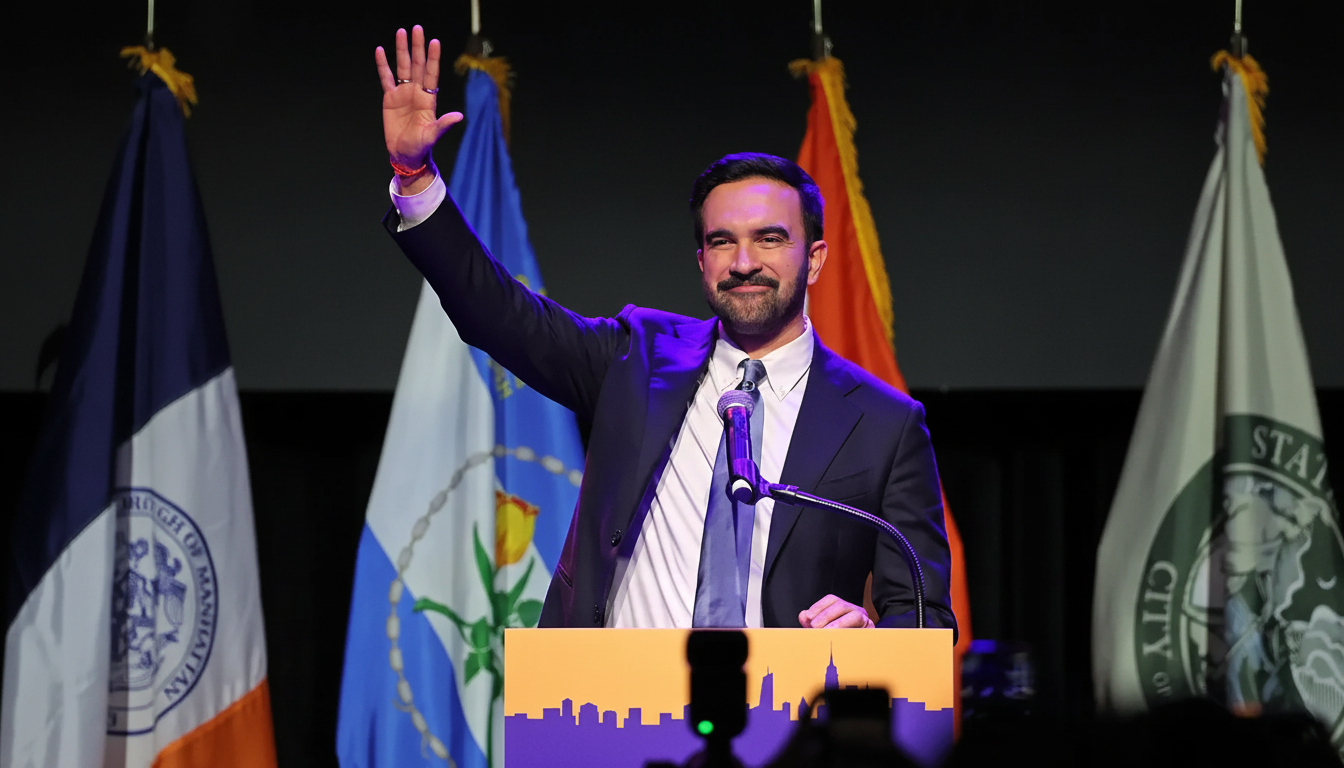John Oliver joined the uproar over Zohran Mamdani’s victory in the New York mayoral race, defending the newly elected mayor’s restraint and skewering the campaign tactics that turned their competition into a cultural proxy fight. On his news-comedy show, Oliver said that the focus on condemning Mamdani’s viral election-night remarks obscured the real story: a candidate who, in his telling, faced an onslaught of Islamophobic attacks and still struck a conciliatory tone with his chief rival, Gov. Andrew M. Cuomo.
Oliver pushes back against backlash over victory remarks
Oliver focused on the moment when Mamdani had told supporters he wanted Cuomo to have a happy private life and that he would no longer mention his name. The line filtered across social media and on cable panels, where detractors presented it as petty. Oliver’s response was sharp: “After months of slurs, innuendo and name-baiting on the trail,” he said, “picking grace is not exactly an insult — it’s discipline.”

He needled Cuomo for what he called the governor’s repeated mispronunciation of Mamdani’s name, positioning it as symbolic of a campaign that was not beyond othering its opponent. The segment crescendoed with Oliver lampooning a series of bizarre AI-generated attack ads, including one inexplicable spot riffing on a beloved civics cartoon. The message wasn’t subtle: when campaigns rely on synthetic spectacles, they risk telegraphing contempt for the intelligence of voters.
The controversial nature of Mamdani’s victory
Mamdani, a Queens … and accountability. Cuomo, who, having lost the progressive party’s nomination, ran a third-party campaign that kept this race hyperpolarized to the end. And the final-night vow to stop saying Cuomo’s name — delivered at the Brooklyn Paramount — was, in context, a closing line. It became culture-war fodder anyway.
Civil rights groups had been warning throughout the cycle that Islamophobic rhetoric was creeping into discourse. Along the way, CAIR-NY and others watchdogged incidents of stereotyping and dog whistles — concerns that have played out on a broader scale in recent election cycles. The N.Y.P.D. Hate Crimes Task Force has seen spikes in hate crimes directed at Muslim and Arab communities during periods of strained geopolitics, a context that made this campaign feel bigger than city politics to many of its observers.
New York is home to hundreds of thousands of Muslim residents living across boroughs, including Queens and Brooklyn, and that alone should have muted the handing over of such tropes in a game of political volleyball, organizers said. Oliver’s argument so successfully channeled that view: that (as Oliver put it) the tone of the campaign — not a single line in a victory speech — is the story.

AI ads and the new campaign playbook under scrutiny
Oliver’s broadside against AI-crafted political ads resonated because it taps into an increasing public fear. The Pew Research Center has also found broad concern around deepfakes and AI-generated messaging in elections, as well as strong demand for labeling synthetic content clearly. Regulators — including the Federal Election Commission and several state authorities — have been mulling rules that demand disclosures when campaigns use generative tools.
The New York contest offered a case study in how fast AI can turn a message into a meme — and how swiftly a stunt can overtake substance. Strategists in both parties have cautioned that novelty-driven tactics might juice attention in the short term but undercut trust, especially if creative expression crosses into caricature. Oliver translated that warning into comedy, saying that absurdity is not a replacement for argument.
Late-night satire steps in as a political referee
Oliver’s intervention follows a well-worn tradition: late-night television providing some sort of unofficial referee when campaigns muddy the waters. For more than two decades, scholars at the Shorenstein Center have reminded us that political comedy may shape what audiences believe is salient — even though it rarely changes hardened minds. In this instance, the monologue echoed a framing already gaining traction among advocates — that as much attention should be paid to the campaign’s rhetoric as to its outcomes.
For Mamdani, the immediate question is whether he can turn a values-first campaign into governing coalitions over housing, policing oversight and transit reliability — issues that generated turnout and gave his brand definition. For Cuomo, the autopsy is whether a combative independent run and attention-grabbing ad strategy heavy on AI jabs boosted or undercut his appeal to a city that often values pragmatism over provocation.
Oliver’s central point broke through the noise: Losing graciously is important, but so is campaigning responsibly. In a city as diverse and politically savvy as New York, both may set the standard for how the next mayor will navigate City Hall — and influence what future candidates decide to say, and how.

